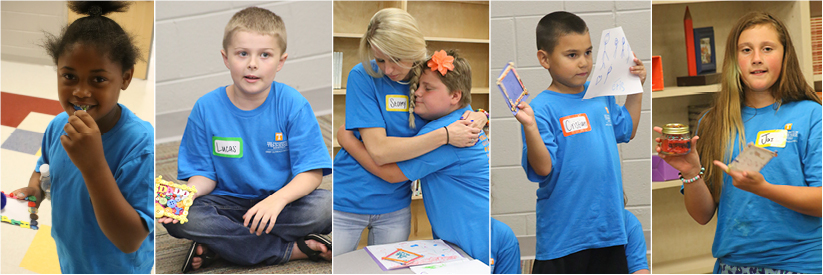!! Big things are coming to EPC !!
As of Fall 2023, we are no longer accepting applications to this certificate program.
The Grief Outreach Initiative (GOI) began accepting referrals on October 1, 2008 after Dean Bob Rider’s meaningful experience with a young child whose parent had recently died.
“Our main goal is to help children live successful lives,” says Dean Rider. “We want to help children be successful and get through these rough times so they can progress and stay on task academically, socially, emotionally, psychologically…in every way possible.”
UT students, especially ones training to become school psychologists, clinical mental health counselors, school counselors, nutritionists, and college student personnel administrators, complete training to work as mentors with children suffering from grief or loss. Once training is complete, the students provide support, acceptance, and a safe place for the expression of thoughts and feelings about grief and loss.
2008
Grief Outreach Initiative begins accepting referrals under coordinator Tricia McClam
2010
McClam and Varga win an Outreach Incentive Grant funding a study on GOI called “Research to Successfully Expand Services Provided to Children in the Community Coping with Grief, Loss or Trauma”
2011
Grief, Loss, and Trauma Graduate Certificate is created with a requirement of COUN 560 – Practicum in Grief Support which offers supervised practice and application of knowledge and skills about grief, loss, and life transitions
2014
GOI has a new coordinator, Laura S. Wheat
2018
GOI hosts Inaugural Camp Aliya
Although a targeted area for GOI are schools in the Empowerment Zone, a 16-square mile area in East Knoxville designated as a high poverty area, referrals come from school counselors, principals, parents, grandparents, case managers, and social workers from across Knox County and surrounding counties.
The children in the program are dealing with major, sometimes devastating, instances of loss and grief. They face circumstances that involve divorce, abandonment, suicide, murder, custody battles, or a parent who has been incarcerated.
The trained graduate students meet with children (P-12), either individually or in small groups, and they listen, draw, talk, play, tell stories, read books, make memory books, record memories, and improvise. These activities help meet the needs of a child or adolescent who, for example, is in so much pain he wants “to stab himself in the heart;” two brothers who found their mother dead one morning, and two siblings and a cousin who saw a family member murdered. Often these children and others like them slip through the cracks.
Participation in the Grief Outreach Initiative benefits UT graduate students in a number of ways. One is the powerful learning experience that “the real world” affords them. They have opportunities to apply their skills, learn about the problems encountered in school and community settings, become engaged in the community, and build their own resumes. Participants also mention as particularly valuable the partnerships they experience with school professionals. These teachers, principals, school counselors, social workers, and case managers who are committed to the well-being of children in our community are the very role models UT faculty wants for their students.
Finally, UT students learn about grief – that it “pervades life,” and for children, it often “comes in waves.” There is no mold for grief and loss and no one way it is alleviated.
Local Resources
Cancer Support Community of East Tennessee
Cherokee Health Systems Community Outreach
Helen Ross McNabb Center
Hope Center
Katerpillar Kids Camp
Mane Support Equine-Assisted Grief Counseling
Resources for Families
Childhood Traumatic Grief – Resources
Choosing the Best Inpatient Addiction & Personal Tragedy or Trauma Recovery Center
Coping with Grief & Loss from Helpguide.org
End of Life Care Resources
FEMA for Kids – Disaster/Trauma Planning Resources
Grief Counseling Resource Guide: A Field Manual
Helping a Child Cope with Grief & Loss
Information for Families from the National Association of School Psychologists
TAPS Tragedy Assistance Program for Survivors
The Children’s Room – Resources
The Dougy Center for Grieving Children & Families
Updated 8/24/2023
